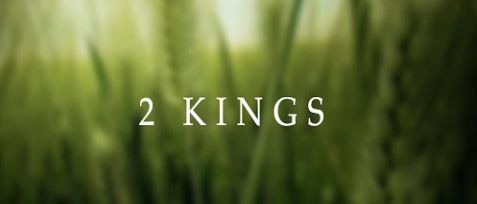An extract from BHFA Volume 5
2 Kings 3:16b
עָשֹׂה הַנַּחַל הַזֶּה גֵּבִים גֵּבִים׃
ditch ditch the this the wadi making
KJB Make this valley full of ditches.
NASB Make this valley full of trenches.
ESV I will make this dry streambed full of pools.
NLT This dry valley will be filled with pools of water!
NIV I will fill this valley with pools of water.
"Wadi" (pl. wadis) is the Arabic term traditionally referring to a valley, ravine, channel or riverbed that is dry for almost all of the time. After heavy rains in their catchment areas, storm water will rush down them for a very short period of time, after which they will return to their dry state.
From the southern shores of the Sea of Galilee, southwards up to and including the shores of the Dead Sea, wadis are common in the mountains on the west bank of the river Jordan. Typically, they carry rainwater in the form of flash floods from their catchment areas on the highlands of Galilee, Samaria, and Judea down into the river Jordan.
The above-mentioned wadis are relatively narrow and steep and do not fit into the circumstances described in this passage. However, as the definition above indicates, a so-called "wadi" could be wide enough to be called a dry river. The areas known as Moab and Edom at the time of this incident, are situated on the east bank of the river Jordan opposite to Samaria and Judea. The mountains there are significantly lower than on the west bank, resulting in much more gradual gradients and as a result much wider wadis. This type of wadi would perfectly fit the circumstances described here.
In addition, this latter location correlates well with the areas from where the warring parties in this narrative originated from.
Like rivers, in many instances wadis are also named locations. Some scholars are of the opinion that this incident took place at Wadi el-Aksy. Situated east of the Jordan, in the region of Moab and Edom, it runs into the Dead Sea near its extreme southeast corner. It is mentioned in Nm. 21:12 and Dt. 2:14 by the name Zered. In Is 15:7 it is called the "brook of the willows", and in Amos 6:14 the "river of the wilderness."
In this incident, the ditches were to gather the water, which otherwise would soon have run away in the torrent (Jer. 14:3-4). As was often the case with the miracles performed by Jesus, this miracle was accomplished by God utilizing commonly known natural phenomena, backed up by the originality of historic facts. However, the people had to take action and dig the trenches for the wonder to take place.
An extract from BHFA Volume 5
2 Kings 5:17b
מַשָּׂא צֶמֶד־ פְּרָדִים אֲדָמָה
earth mules a pair of loads
KJB two mules' burden of earth
NASB two mules' load of earth;
ESV two mule loads of earth,
NLT two of my mules with earth from this place,
NIV as much earth as a pair of mules can carry,
In BHS we find a footnote stating that in the original Septuagint the last word in this phrase is absent.
The m. sg. noun צֶמֶד means, "couple, pair, span of oxen."
In addition, it has the meaning of an area, and is the only square measure in the Hebrew Bible. It has been defined as "the area that a span of oxen could plough in one day."
